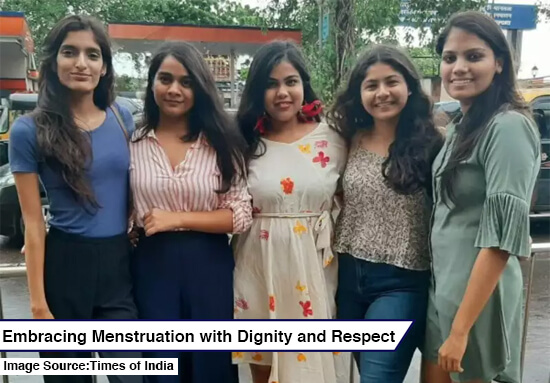88% of Indian women don't use the most basic form of menstrual protection available in the market.
Have you ever imagined not having access to proper toilets or running water during your
periods? Or not having access to sanitary menstrual items? Or how to deal with feelings of
shame, embarrassment, or isolation due to your period? Well, this is the reality of most women
in India who don't have access to proper menstrual hygiene management.
Women and girls from the weaker sections of society have to deal with these questions regularly.
Menstruation is a natural part of the reproductive cycle, but in India talking about periods and
menstruation is still frowned upon. A country where childbirth is celebrated, but still talk of
menstruation is seen as a taboo in certain sections of the societies. In fact, in certain sections, a
menstruating woman is looked at as impure and contaminated.
To combat this misconception and to spread awareness the government of India launched the
National Menstrual Hygiene Scheme under the ‘Rashtriya Kishor Swasthya Karyakram’ program
back in 2014. The objective of the scheme is to promote menstrual hygiene among adolescent
girls in rural areas by supplying as well as training self-help groups to make sanitary napkins. In
addition there are many top NGOs in India helping women and adolescent girls practice safe and
hygienic menstrual practices.
However there are some women who still use old clothes, leaves, or anything that they lay their
hands on to collect menstrual blood. Using old clothes or other unsafe methods to deal with
menstruation not only hampers mobility but also can lead to serious health complications.
Around 23 million girls drop out of school every year at the first occurrence of menstruation.
Most of these adolescent girls are scared, have fear of getting judged by society, and are aware of
the lack of proper sanitation, unavailability of sanitary pads, and cleanliness programs in schools.
Healthy Way to Manage Periods
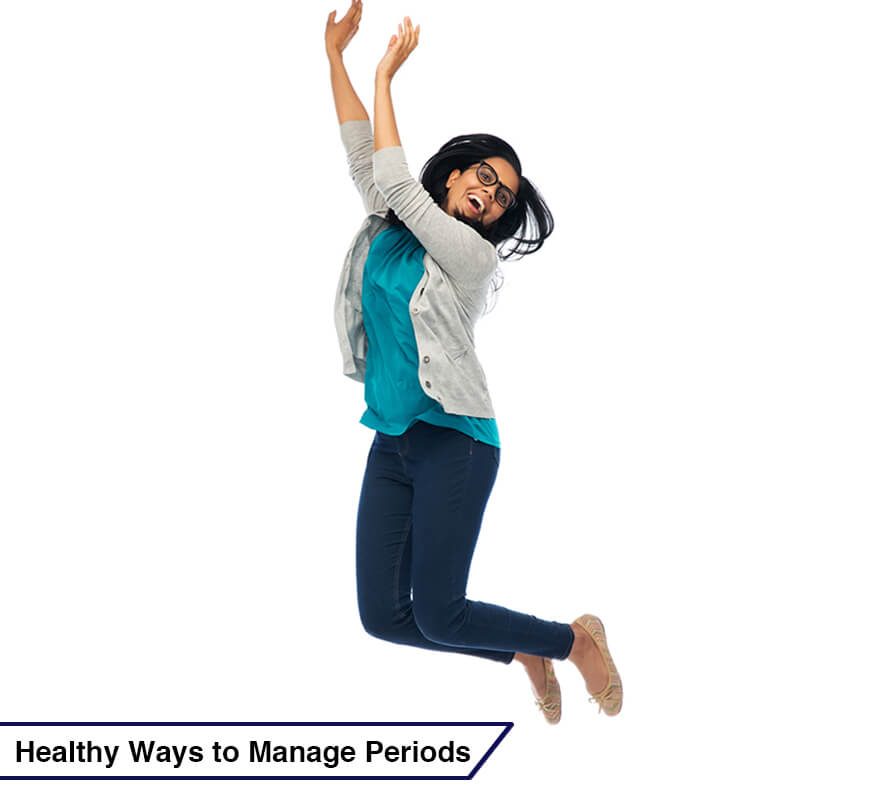
Menstruation is a natural biological process that is important in maintaining the reproductive health of women. Menstruation, also known as a period or monthly, is the regular discharge of blood and mucosal tissue (known as menses) from the inner lining of the uterus through the vagina. The first period usually begins between twelve and fifteen years of age, a point in time known as menarche.
Lack of information and other socio-cultural norms and the use of unhygienic products instead of the safer sanitary pads make it difficult for girls to maintain hygiene. Learning about menstruation empowers girls to take care of themselves in a better and informed manner.
Some women are also forbidden to take baths or cleanse themselves properly during these days, which increases the risk to their health and chances of being infected with life-threatening diseases. Some women refrain from going outside as the Water and sanitation facilities lack basic hygiene like water, soap, and separate gender-based toilets.
97% of infections can be reduced in women by providing proper menstrual solutions like sanitary napkins, tampons, and the cleanliness of the genital area.
Changing sanitary napkins every 4 hours and washing hands can help in keeping infections at bay. The proper use and disposal of sanitary napkins will also give confidence to women to continue their day to day activities.
Some women may experience heavy flow and may require to change the pads every 2 hours. With proper WASH facilities water, sanitation, and hygiene combined with sanitary napkins can give freedom to more girls and women.
Here are the top 4 reasons to maintain good hygiene during periods.
Lessen the Risk of Urinary Tract Infections
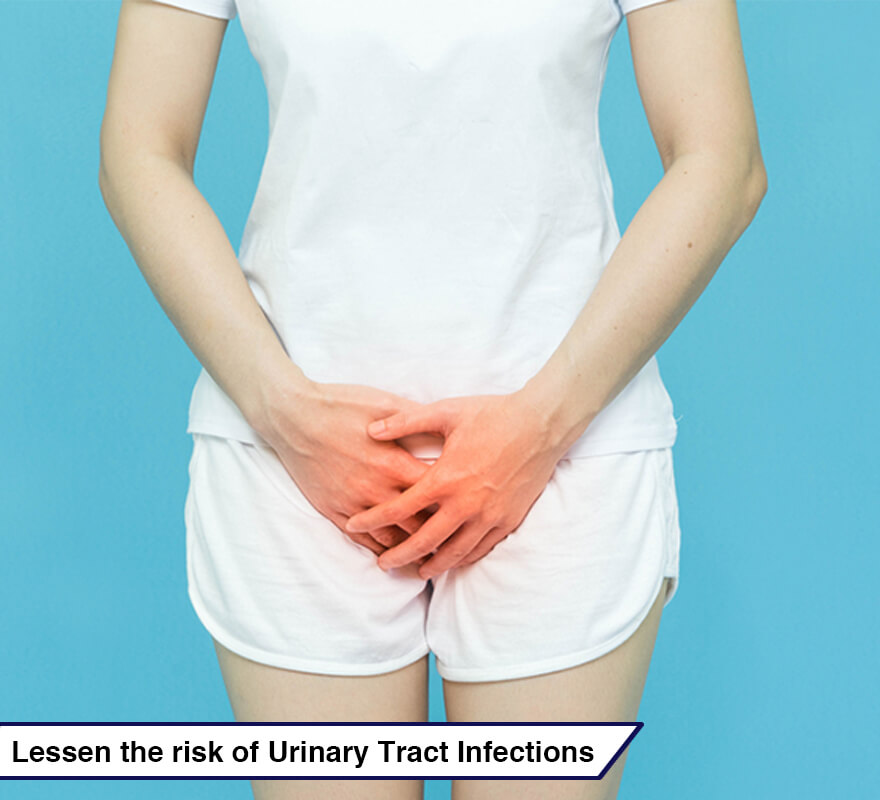
Using damp and unclean dirty clothes for menstrual hygiene or using sanitary pads for more than 4 hours can act as a perfect environment for the growth of bacteria and yeast. Microbes like Candida albicans, Staphylococcus aureus, E.coli, and Pseudomonas aeruginosa grow easily in the humid environment provided by prolonged use of unhygienic absorbents or sanitary napkins. These bacteria can invade your urinary tract including the urethra and urinary bladder, resulting in painful urination, lower abdominal pain, back pain, and fever.
These complications can be easily avoided by women by using clean sanitary napkins and washing the genital area with clean water and mild soap. Always remember to change the sanitary pad every 4 hours and washing hands thereafter.
Say No to Rashes in Genitals
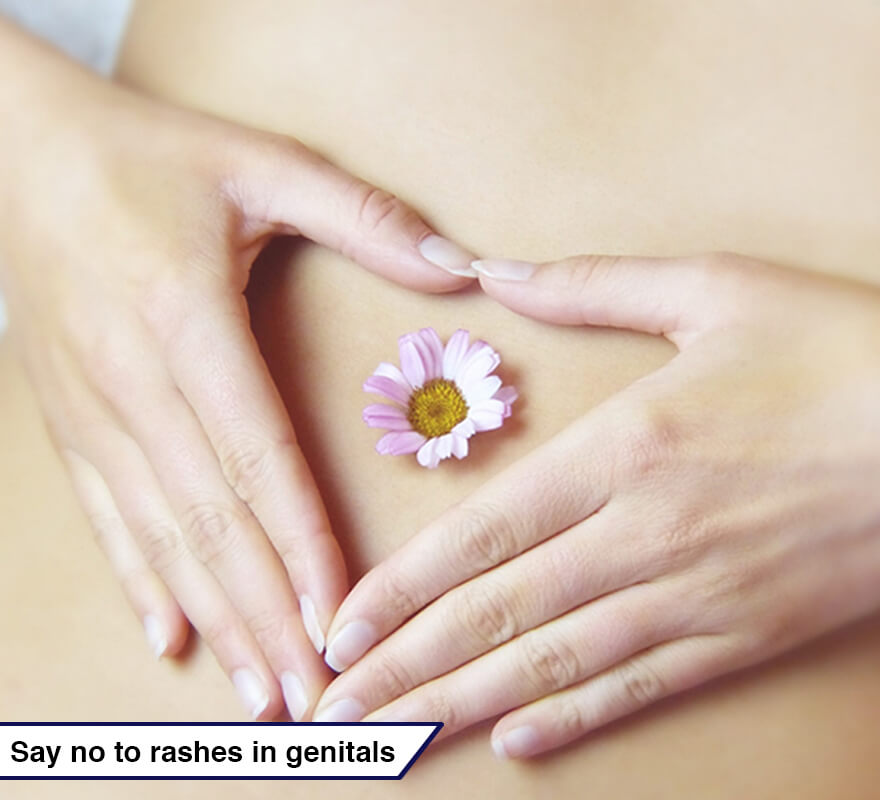
Prolonged wetness of the genital area can cause abrasions, rashes, and allergy during menstruation. Commercially available sanitary napkins are made of Super Absorbent Polymer (SAP) as an absorbent material, with Polyethylene (PE) for back cover which makes it waterproof. These pads have plastic in them and can cause rashes if not changed on regular basis.
Biodegradable napkins are now available which not only are eco-friendly but can be reused making them safe and sustainable.
Say Yes to Good Reproductive Health
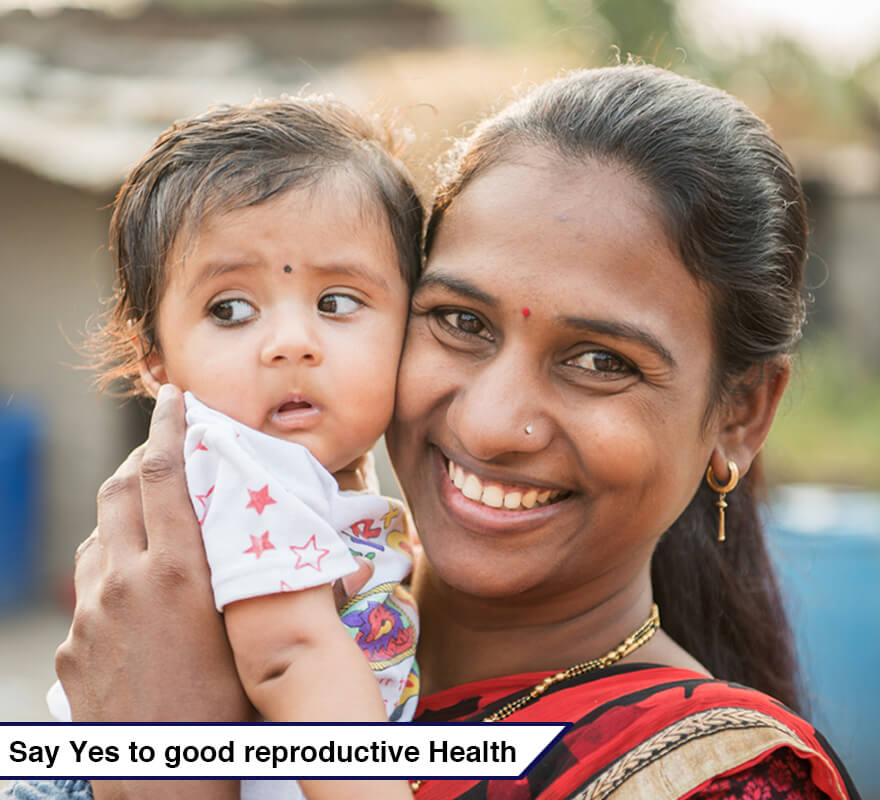
Unhygienic Menstrual practices and improper hygiene can lead to Reproductive Tract Infections. Reproductive tract infections (RTI's) are endemic in developing countries and entail a heavy toll on women. If untreated, RTI's can lead to adverse health outcomes such as infertility, ectopic pregnancy, and increased vulnerability to the transmission of the human immunodeficiency virus.
A large chunk of women in India use unhygienic materials to collect menstrual blood and may suffer from RTI's and vaginal discharge.
Awareness programs, access to sanitary pads, and clean water are essential for women to keep good reproductive health.
Decrease the Risk of Cervical Cancer
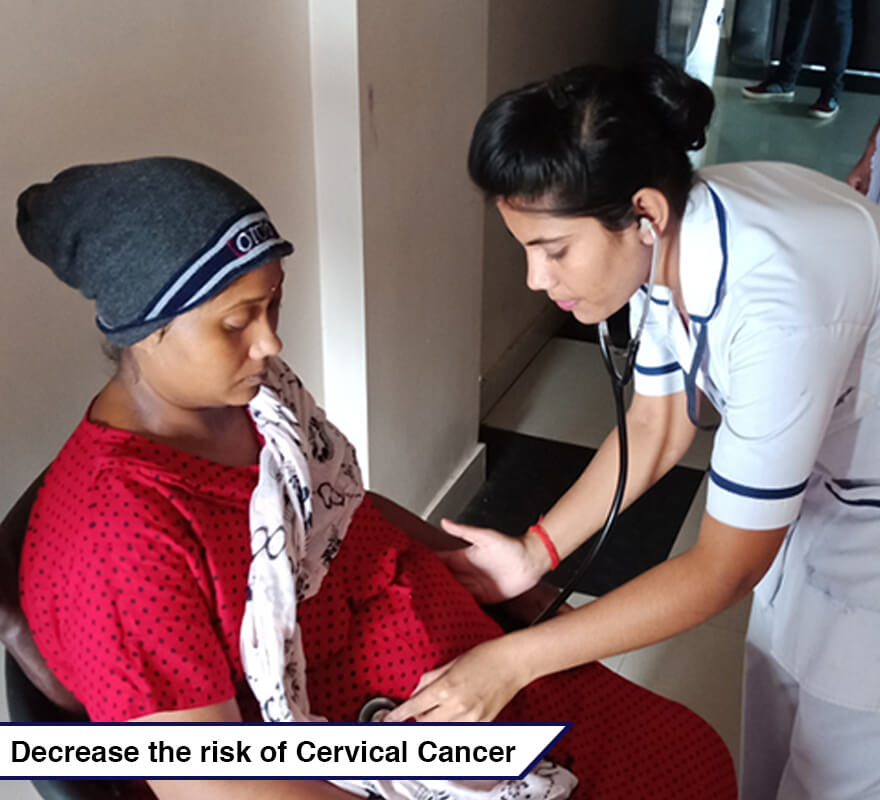
Cervical Cancer is a type of cancer that occurs in the cells of the cervix — the lower part of the uterus that connects to the vagina.
Long-lasting infection with certain types of human papillomavirus (HPV) is the main cause of cervical cancer. HPV is a common virus that is passed from one person to another during sex.
At least half of sexually active people will have HPV at some point in their lives, but few women will get cervical cancer.
Poor Menstrual hygiene can also cause cervical cancer. India produces over 70,000 victims every year and is one of the top-ranking cancers in women in India.Regular Washing of Hands after changing sanitary pads and washing of genital areas during periods can help with reducing the risk of getting cervical cancer.
Awareness around menstruation through education is the key. There is a dire need to educate women on how using sanitary napkins can help prevent many infections and side effects besides maintaining body hygiene and shunning away from the blind beliefs and taboos around it.
Teenage girls, especially from underprivileged backgrounds, are unaware of how to deal with menstruation and that leads them to practice unsafe menstrual hygiene.
What is Child help doing to spread Awareness about Menstrual Hygiene
Child Help Foundation(CHF), an NGO headquartered in Mumbai, with pan India operations has a MHM program which stands for Menstrual Hygiene Management and throughout the year awareness programs are conducted across the country. CHF holds these programs across a Diaspora of women and girls right from adolescent school going girls, rural women, tribal women and even their own staff which comprises of more than ninety percent women.
To increase participation from girls CHF also hold Q&A sessions, organize quiz and even have a few gynecologists on board to spread awareness about the importance of menstrual hygiene. These awareness programs are conducted once in every three months. Child Help Foundation also conducts Health camps at Ashram Shalas (Government Schools) to check the health of adolescent girls and provide medical help if required.
Some adolescent girls are a little shy to disclose personal information and to combat their shyness and to also make it easier for girls to ask questions, the CHF staff and volunteers have set up suggestion boxes where girls can write and ask any questions related to menstrual hygiene. By installing these suggestion boxes it makes it convenient for girls to ask any queries which are then answered at a later date. These questions help girls to take informed decisions towards better menstrual hygiene.
As part of the MHM program, which has seen great participation from lakhs of women and girls, Child Help Foundation have till date distributed more than 3 lakh sanitary pads Free of Cost across the country.
Please do write to contact@childhelpfoundationindia.org to become a volunteer and spread awareness about safe menstrual hygiene practices to young girls and women from underprivileged backgrounds.
